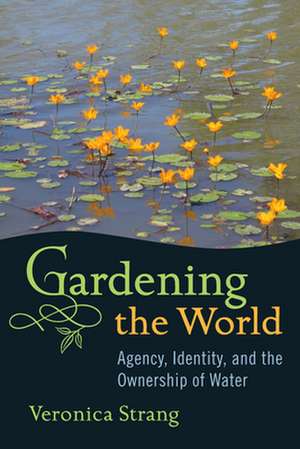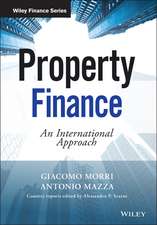Gardening the World
Autor Veronica Strangen Limba Engleză Paperback – 31 mai 2013
Veronica Strang is a Professor of Anthropology and Executive Director of the Institute of Advanced Study at Durham University. An environmental anthropologist, she has written extensively on water, land and resource issues in Australia and the UK, and is the author of Uncommon Ground: Cultural Landscapes and Environmental Values (Berg 1997), and The Meaning of Water (Berg 2004). She also co-edited, with Mark Busse, the ASA Monograph, Ownership and Appropriation.
| Toate formatele și edițiile | Preț | Express |
|---|---|---|
| Paperback (1) | 263.47 lei 6-8 săpt. | |
| BERGHAHN BOOKS INC – 31 mai 2013 | 263.47 lei 6-8 săpt. | |
| Hardback (1) | 752.42 lei 6-8 săpt. | |
| BERGHAHN BOOKS INC – 31 iul 2009 | 752.42 lei 6-8 săpt. |
Preț: 263.47 lei
Nou
Puncte Express: 395
Preț estimativ în valută:
50.42€ • 52.77$ • 41.96£
50.42€ • 52.77$ • 41.96£
Carte tipărită la comandă
Livrare economică 31 martie-14 aprilie
Preluare comenzi: 021 569.72.76
Specificații
ISBN-13: 9781782381303
ISBN-10: 1782381309
Pagini: 326
Dimensiuni: 152 x 229 x 17 mm
Greutate: 0.44 kg
Editura: BERGHAHN BOOKS INC
ISBN-10: 1782381309
Pagini: 326
Dimensiuni: 152 x 229 x 17 mm
Greutate: 0.44 kg
Editura: BERGHAHN BOOKS INC
Notă biografică
Veronica Strang is a Professor of Anthropology at the University of Auckland. An environmental anthropologist, she has written extensively on water, land and resource issues in Australia and the UK, and is the author of Uncommon Ground: Cultural Landscapes and Environmental Values (Berg 1997), and The Meaning of Water (Berg 2004).
Cuprins
List of Figures and Tables Acknowledgements Introduction Chapter 1. A Process of Engagement Chapter 2. Governing Water Chapter 3. Indigenous Fluidscapes Chapter 4. Farming Water Chapter 5. Manufacturing Water Chapter 6. Recreating Water Chapter 7. Saving Water Conclusion Bibliography Index
Recenzii
"[This book] is both an impressive, intellectual synthesis of long-term ethnographic research and a provocation for water users and academic writers. Strang writes fluidly about two specific Australian water basin, yet readers will immediately be struck with the strong parallels in water use and policy from their own regions." * Journal of Anthropological Research "A significant strength of the book is the depth of research that it draws on - [It] is a very timely study of an important issue. It is extremely well researched and has real policy implications. There is no doubt that this book will be of wider interest, and appeal to many people concerned with human - environment relationships." * Anthropological Forum "The qualitative, thick ethnography, using narratives and cultural historical data, brings to the forefront many social aspects, such as gender - This is an important book not only from the point of view of competently dealing with the issue of water and its sustainability for future life on earth but also as a book of ecological anthropological theory." * Anthroplogical Notebooks "Veronica Strang draws a compelling fluidscape in masterly strokes to show that water belongs in its totality to a context, within a geographical area. She reminds the readers convincingly that water is an integral part of ecological order and describes how cultural values abstract this invaluable and finite natural resource. The meanings of water flow through and across sectoral boundaries to reveal sharp tensions between different uses of it. This book is a must-read for anyone wanting to know about water." * Kuntala Lahiri-Dutt Fellow, Resource Management in Asia Pacific Program Research, The Australian National University "...addresses an extremely important topic in an interesting way...a valuable contribution to the debate about water as a material and symbolic resource." * Kay Milton, Queen's University Belfast "This richly developed, well-argued work is an essential read for environmental scholars, students, and practitioners." * Barbara Rose Johnston, Senior Research Fellow, Center for Political Ecology







